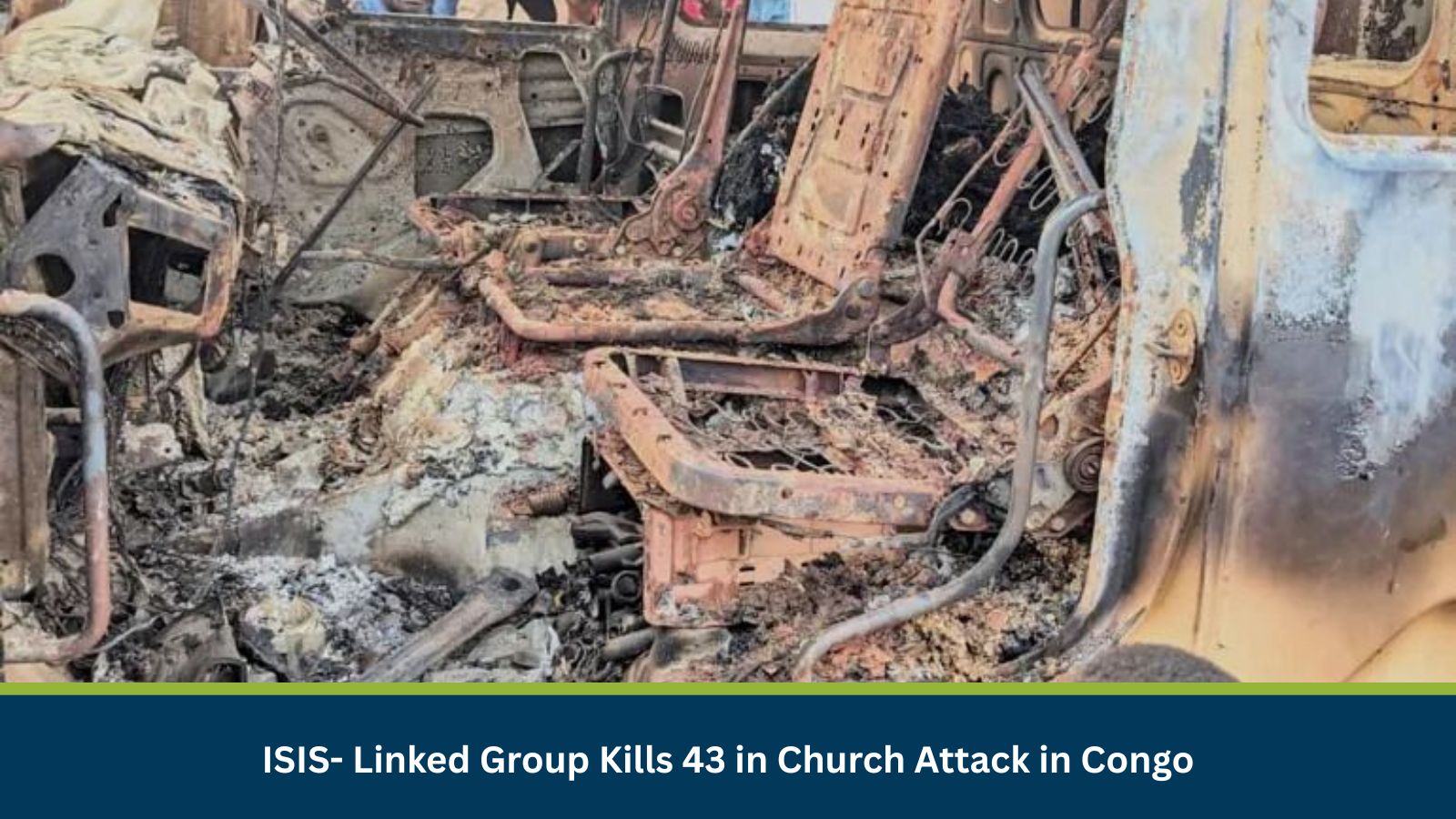On July 27, in a deadly overnight attack on a Catholic Church in Komanda, a village located 75 kilometers from the city of Bunia, the provincial capital of Ituri province in north-eastern Democratic Republic of Congo (DRC), has killed at least 43 people, ending a period of relative calm in the region. The UN mission in the country called the attack a “heinous” act of violence, The Pope has expressed “deep sorrow” over the massacre.
The attack has been claimed by Allied Democratic Forces (ADF), a group linked with ISIS. Islamic State said on its Telegram channel that the rebels had killed some 45 churchgoers and burned dozens of homes and shops.
Formed in 1990 as an anti-government rebel group in Uganda, IDF later shifted its base to eastern DRC. It formally aligned with ISIS in 2019. Driven out of Uganda by military pressure, IDF now operates in Ituri and North Kivu provinces launching cross-border attacks on civilians.
Uganda and DRC had launched a joint military operation in 2021 to defeat the group, but its threat continues to persists. This weekend’s attack is the deadliest since February when IDF killed 23 people.
Despite being under pressure by the Ugandan and DRC forces, the latest attacks show that ADF still retains the capability to strike civilian targets. ADF is a highly mobile group that has been difficult to significantly weaken as it continues hit-and-run violence. When military operations put pressure on the group, it attacks soft civilian targets.
Ugandan troops have now expanded operations and captured multiple towns in DRC. Uganda says the moves are pre-emptive to avert ethnic violence. However, a recent UN report accuses Uganda of involvement in the exploitation of DRC’s natural resources. Many in DRC are suspicious about Uganda’s growing military presence and intentions; some accuse Uganda of supporting rebel groups like M-23 and compromising Congo’s sovereignty. Kampala denies these allegations.






